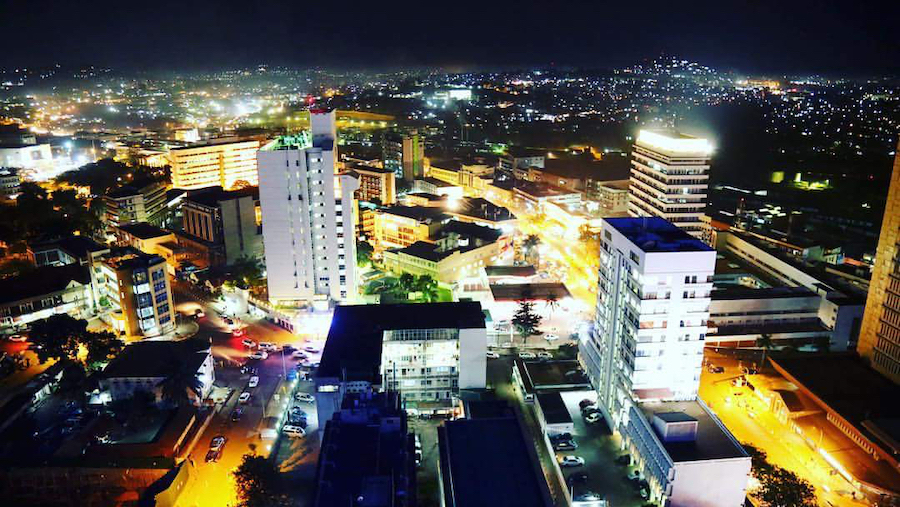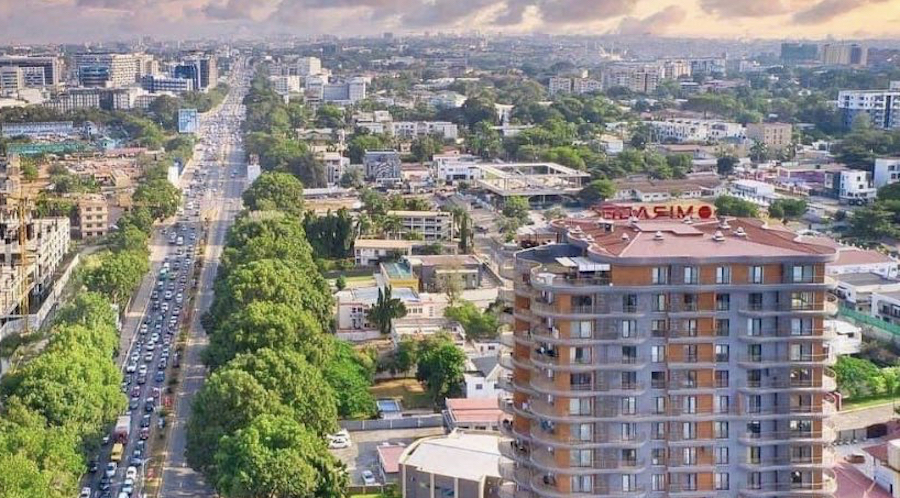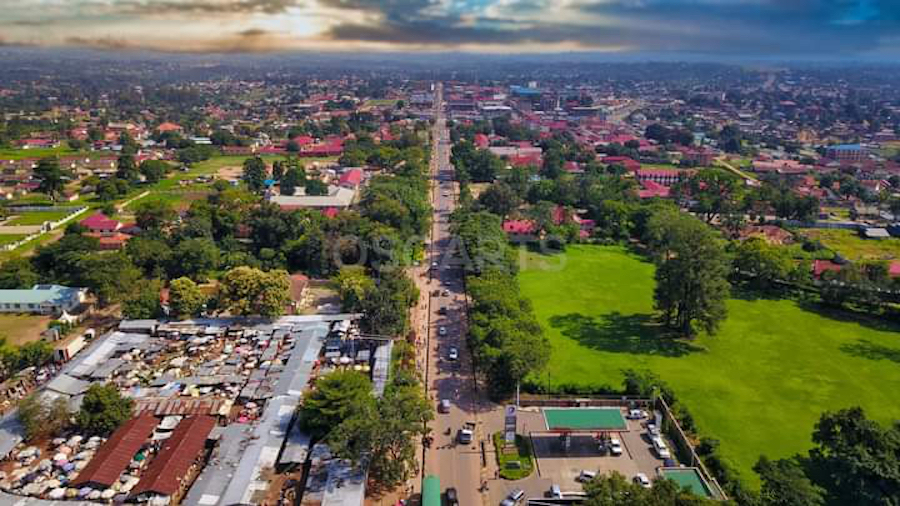 Uganda has a unique charm that extends to its vibrant cities. Each city in Uganda offers a distinct blend of tradition and modernity, creating an enchanting tapestry that beckons travelers from across the globe.
Uganda has a unique charm that extends to its vibrant cities. Each city in Uganda offers a distinct blend of tradition and modernity, creating an enchanting tapestry that beckons travelers from across the globe.Kampala: The Capital City
 Kampala, Uganda’s sprawling capital city, is the pulsating heart of the nation. Situated on the shores of Lake Victoria, the largest lake in Africa, Kampala boasts a bustling atmosphere and an eclectic mix of cultures.
Kampala, Uganda’s sprawling capital city, is the pulsating heart of the nation. Situated on the shores of Lake Victoria, the largest lake in Africa, Kampala boasts a bustling atmosphere and an eclectic mix of cultures.
Founded on the hills, the city’s skyline is adorned with tall buildings, historical monuments, and vibrant markets. With a population of over 2 million people, Kampala is a melting pot of tribes, languages, and religions.
In addition to being the political and administrative center of Uganda, Kampala city is a vibrant hub for commerce, trade, and industry.
The city’s economic growth has attracted numerous investors and entrepreneurs, leading to the development of modern infrastructure, shopping malls, and a thriving nightlife.
Despite its rapid urbanization, Kampala maintains its cultural roots and traditions. Visitors can explore historical landmarks such as the Kasubi Tombs, the National Museum, and the Gaddafi National Mosque.
The bustling Owino Market and Nakasero Market offer a glimpse into the local way of life, with an array of fresh produce, crafts, and textiles.
Entebbe: Gateway to Uganda
 Located on the northern shores of Lake Victoria, Entebbe serves as the gateway to Uganda for international travelers arriving at the Entebbe International Airport.
Located on the northern shores of Lake Victoria, Entebbe serves as the gateway to Uganda for international travelers arriving at the Entebbe International Airport.
With its scenic beauty and relaxed atmosphere, Entebbe is a popular destination for tourists looking to unwind before venturing further into the country.
Entebbe is renowned for its stunning botanical gardens, which house a wide variety of indigenous and exotic plants.
The Uganda Wildlife Education Centre (UWEC) is also a significant attraction, offering visitors a chance to observe and learn about the country’s diverse wildlife.
Historically, Entebbe holds significance as the former colonial administrative capital of Uganda, and it was the site of the infamous Entebbe Airport Raid in 1976. The city’s colonial-era architecture and the Entebbe State House add to its cultural heritage.
Jinja: The Adventure Capital
 Known as the “Source of the Nile,” Jinja lies at the point where the Nile River begins its epic journey northwards.
Known as the “Source of the Nile,” Jinja lies at the point where the Nile River begins its epic journey northwards.
Approximately 80 kilometers east of Kampala, Jinja has evolved into Uganda’s adventure capital, attracting thrill-seekers and water sports enthusiasts from all corners of the world.
The Nile’s strong currents and turbulent rapids have made Jinja a prime destination for white-water rafting, kayaking, and jet boating. Bungee jumping over the Nile is another adrenaline-pumping activity that draws daredevils to the city.
Beyond its adventurous spirit, Jinja City also offers a glimpse into Uganda’s colonial past. The Owen Falls Dam, now known as the Nalubaale Dam, is a significant landmark and an essential source of hydroelectric power for the country.
The town’s picturesque setting and laid-back atmosphere make it a favorite spot for both locals and visitors.
Mbarara: The Land of Milk and Honey
 Situated in southwestern Uganda, Mbarara is the largest city in the region and serves as the gateway to the western part of the country.
Situated in southwestern Uganda, Mbarara is the largest city in the region and serves as the gateway to the western part of the country.
Known as the “Land of Milk and Honey,” Mbarara is an important center for agriculture, particularly dairy farming and honey production.
The Ankole cattle, with their distinct long horns, are a symbol of the region and are an integral part of the local culture.
Visitors can witness the traditional cattle-keeping practices and learn about the significance of cattle in the lives of the Ankole people.
Mbarara City is also rich in cultural heritage, with various traditional dance forms, rituals, and festivals. The Igongo Cultural Center and Museum provide insights into the history and traditions of the Ankole kingdom. T
he city’s vibrant marketplaces, such as Rwizi Archarde, offer an authentic shopping experience for handicrafts, fruits, and vegetables.
Gulu: A City of Resilience
 Gulu, located in northern Uganda, has a storied past, having endured the devastating effects of the Lord’s Resistance Army (LRA) insurgency.
Gulu, located in northern Uganda, has a storied past, having endured the devastating effects of the Lord’s Resistance Army (LRA) insurgency.
Despite the challenging history, Gulu has emerged as a city of resilience, with its people embracing a spirit of hope and determination.
Gulu city is the commercial and administrative hub of northern Uganda, fostering economic growth and development in the region.
Gulu’s bustling markets, including the Gulu Main Market and the Pece Market, offer a vibrant display of local produce and crafts.
Gulu’s rich cultural heritage can be experienced through its traditional dance performances, storytelling, and rituals.
The Acholi Cultural Institution plays a vital role in preserving and promoting the Acholi heritage.
Soroti: The Serene Eastern City
 Nestled in eastern Uganda, Soroti is a serene and picturesque city surrounded by beautiful landscapes. Soroti serves as the main commercial and administrative center of the Teso sub-region.
Nestled in eastern Uganda, Soroti is a serene and picturesque city surrounded by beautiful landscapes. Soroti serves as the main commercial and administrative center of the Teso sub-region.
The city’s peaceful ambiance and friendly residents make it an ideal destination for those seeking a more laid-back experience.
Agriculture plays a crucial role in Soroti’s economy, with the fertile lands around the city supporting the cultivation of various crops, including sorghum, millet, and maize.
The Soroti Fruit Market showcases an impressive array of fresh fruits, reflecting the region’s agricultural bounty.
Soroti City is also known for its traditional music and dance, which reflect the Teso people’s cultural heritage. The Iteso Cultural Union actively promotes and preserves the local customs and traditions.
Masaka: The Land of Beauty and Rich History
 Located in the southwestern region of Uganda, Masaka City is surrounded by rolling hills, verdant landscapes, and picturesque lakes.
Located in the southwestern region of Uganda, Masaka City is surrounded by rolling hills, verdant landscapes, and picturesque lakes.
Its natural beauty is a sight to behold, making it a popular stop for travelers on their way to national parks and other attractions.
Masaka has a rich historical background, dating back to the time of the Buganda Kingdom. The city played a significant role in the construction of the Uganda Railway, which connected the interior of Uganda to the Indian Ocean coast.
The Masaka Railway Station is a historical landmark that symbolizes the city’s railway heritage.
As an agricultural hub, Masaka’s markets bustle with activity, offering an assortment of fresh produce and crafts.
Visitors can immerse themselves in the vibrant local culture, witnessing traditional dance performances and exploring local art galleries.
Mbale: The Gateway to Mount Elgon
 Nestled on the slopes of Mount Elgon in eastern Uganda, Mbale City serves as the gateway to one of the country’s most awe-inspiring natural wonders.
Nestled on the slopes of Mount Elgon in eastern Uganda, Mbale City serves as the gateway to one of the country’s most awe-inspiring natural wonders.
Mount Elgon National Park, with its diverse flora and fauna, attracts hikers, trekkers, and nature enthusiasts alike.
Mbale’s captivating landscapes are complemented by its rich cultural heritage. The city is home to the Bagisu people, known for their famous Imbalu circumcision ceremony, which marks the transition of boys into manhood.
This traditional event is a significant cultural experience for locals and an intriguing spectacle for visitors.
The Wanale Ridge and Sipi Falls are other notable attractions around Mbale, offering breathtaking views and opportunities for outdoor adventures.
Arua: The Gateway to West Nile
 Situated in the northwest region of Uganda, Arua acts as the gateway to the West Nile sub-region and neighboring countries like the Democratic Republic of Congo and South Sudan. The city’s strategic location has made it a vital center for trade and commerce.
Situated in the northwest region of Uganda, Arua acts as the gateway to the West Nile sub-region and neighboring countries like the Democratic Republic of Congo and South Sudan. The city’s strategic location has made it a vital center for trade and commerce.
Arua’s vibrant markets, including the Arua Main Market and Oli Market, offer an assortment of goods and commodities from various regions, reflecting the city’s role as a trading hub.
Arua city is also known for its rich cultural diversity, with numerous ethnic groups living harmoniously. Traditional dances, songs, and rituals are an integral part of the local identity.
Fort Portal: The Gateway to the Mountains of the Moon
 Nestled in the western part of Uganda, Fort Portal is a charming city surrounded by the Rwenzori Mountains, also known as the “Mountains of the Moon.”
Nestled in the western part of Uganda, Fort Portal is a charming city surrounded by the Rwenzori Mountains, also known as the “Mountains of the Moon.”
The city’s lush greenery, crater lakes, and cool climate make it a popular destination for nature lovers and adventurers.
Fort Portal City is an excellent base for exploring the nearby Kibale National Park, famous for its diverse primate population, including chimpanzees.
Queen Elizabeth National Park and Semuliki National Park are also easily accessible from Fort Portal, offering opportunities for wildlife safaris and birdwatching.
The city’s colonial past is evident in its architecture, with landmarks like the Toro Kingdom Palace and the Fort Portal Golf Course reflecting its historical significance.
Lira: The Cultural Crossroads of the North
 Located in northern Uganda, Lira City is rich in cultural diversity and is often referred to as the “Cultural Crossroads of the North.” The city is inhabited by various ethnic groups, including the Langi, Acholi, Iteso, and Karamojong people.
Located in northern Uganda, Lira City is rich in cultural diversity and is often referred to as the “Cultural Crossroads of the North.” The city is inhabited by various ethnic groups, including the Langi, Acholi, Iteso, and Karamojong people.
Lira’s cultural heritage is on display in traditional dance performances, vibrant marketplaces, and the annual Lango Cultural Festival, which celebrates the customs and traditions of the Langi people.
The city’s economy centers around agriculture, with crops such as millet, sorghum, and groundnuts being vital to the region’s livelihood.
Lira’s central location and growing infrastructure contribute to its increasing importance as a regional center for trade and commerce.
Conclusion
Uganda’s cities present a mosaic of culture, history, and natural beauty, each offering unique experiences that showcase the country’s diversity and charm.
From the bustling streets of Kampala to the serene landscapes of Soroti, the adventure in Jinja, and the cultural heritage of Lira, each city contributes to the tapestry of Uganda’s captivating allure.
Whether it’s the vibrant markets, historical landmarks, outdoor adventures, or the warm hospitality of the locals, exploring the cities of Uganda promises an enriching and unforgettable journey.